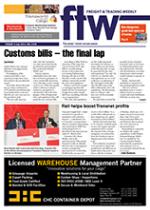Zimbabwean economic
growth has slowed
dramatically,
with logistics
companies
reporting
widespread
business closures
among their clients.
According to
the International
Monetary
Fund (IMF),
the economic
rebound
experienced
since the end of
hyperinflation
in 2009 has
ended.
“After
averaging 10%
from 2009-
2012, growth fell to an
estimated 3.3% in 2013,
reflecting tight liquidity
conditions, election-year
uncertainty, weak demand for
key exports, competitiveness
pressures, and the impact of
adverse weather.
“Inflation continued
its downward trend
from 2.9% (year-onyear)
at end-2012 to
-0.3% in April
2014, mainly
reflecting the
appreciation
of the US
dollar against
the South
African rand
and weak
domestic
demand,”
said the
IMF Board
of directors after holding
bilateral discussions with the
Zimbabwean authorities.
“Zimbabwe’s external
position remains precarious,
with usable international
reserves covering less than
two weeks of imports,” warns
the IMF.
Lower exports of minerals
have put pressure on both
the budget and hauliers, who
are looking aggressively for
business in neighbouring
markets.
“Zimbabwe faces serious
medium-term challenges
and achieving sustainable,
inclusive growth will require
strong macroeconomic and
financial policies, an enabling
business environment, and
normalised relations with
creditors," says the IMF in
a statement.
INSERT
After averaging 10%
from 2009-2012,
growth fell to an
estimated 3.3% in
2013.

